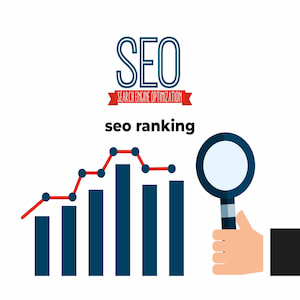What is the Role of AI in eCommerce?

Welcome to the New Era of Selling
You’ve probably seen it. A customer lands on your site, and boom—just the right product is waiting on the homepage. A chatbot says “Need help?” before they even ask. Your email funnel is sending personalized offers while you’re sipping cold brew on a rooftop somewhere.
That’s not magic. That’s AI in eCommerce.
We’re living in an age where machine learning and smart algorithms are rewriting the rules of digital retail. If you’re in the game—or planning to be—AI isn’t just an edge. It’s the engine.
What is the most successful eCommerce?
What is the best use of AI in ecommerce?
How AI is Transforming Online Stores
Let’s break down how AI is making online selling smarter, leaner, and more human—all at once.
1. Personalized Product Recommendations
Amazon didn’t guess what you wanted. AI did.
By tracking behavior—clicks, searches, purchase history—AI systems build customer profiles so accurate, it’s borderline eerie. This isn’t just data. It’s relevance at scale.
Why it matters:
-
Boosts conversions
-
Reduces bounce rates
-
Increases average order value
Example:
Netflix-style recommendation engines are being used by Shopify brands to show “Frequently Bought Together” or “You May Also Like” sections—completely powered by machine learning.
2. AI-Powered Customer Service
Goodbye hold music. Hello instant answers.
AI chatbots and virtual assistants are now capable of handling 80% of customer inquiries—from shipping questions to product returns. Platforms like Zendesk and Intercom are using NLP (Natural Language Processing) to simulate real conversations.
What you get:
-
24/7 support
-
Lower staffing costs
-
Smoother CX (Customer Experience)
3. Smarter Inventory Management
You don’t need a crystal ball to forecast sales anymore. You need AI inventory forecasting.
By analyzing trends, seasonality, and customer behavior, AI helps online stores know what to stock and when.
| Traditional Inventory | AI-Powered Inventory |
|---|---|
| Manual tracking | Predictive analytics |
| Guess-based ordering | Demand forecasting |
| High overstock risk | Lean, optimized stock |
Big players like Zara and Walmart already use this to reduce costs and waste.
4. Dynamic Pricing: AI Sets the Price Right
Prices don’t stay still anymore. They adapt.
AI analyzes competitor pricing, demand, customer profiles, and even time of day to adjust product prices in real-time.
Result?
-
Max profit margins
-
Higher conversion rates
-
Laser-focused discounting
Platforms like Prisync or Intelligence Node let mid-size eCommerce sites use the same pricing tactics as Amazon.
5. AI in Marketing Automation
Your next email campaign might be written by AI—and that’s not a bad thing.
With tools like Klaviyo AI and Meta’s Advantage+, eCommerce brands can now:
-
Automate ad creatives
-
Target hyper-specific audiences
-
Predict lifetime value of a customer
Add predictive analytics, and now your system knows who will buy before even they do.
Real Talk: Should You Be Worried About AI?
Here’s the thing. AI isn’t replacing you. It’s augmenting you.
Yes, automation can feel like it’s stealing the hustle, but if anything, it’s giving you back time—so you can focus on vision, not the daily grind.
The winners in eCommerce? They’ll be the ones who blend human creativity with machine intelligence.
What is the cheapest eCommerce platform?
How to Start Using AI in Your eCommerce Business
Step 1: Add Smart Recommendations
Use platforms like Nosto, Algolia, or Dynamic Yield to personalize shopping experiences.
Step 2: Install AI Chat Support
Try Tidio, Drift, or Zendesk AI bots.
Step 3: Use Predictive Analytics
Adopt tools like Google Analytics 4, PaveAI, or Retently for deep customer insights.
Step 4: Automate Email & Ad Campaigns
Leverage Klaviyo, Mailchimp AI, or Shopify Magic to power your marketing.
FAQs About AI in eCommerce
Q: Is AI too expensive for small eCommerce shops?
Nope. Tools like Shopify Magic or ChatGPT integrations are budget-friendly and scalable.
Q: Will AI replace customer service reps?
It’ll handle repetitive tasks, but humans still rule in complex or emotional support cases.
Q: How accurate is AI in predicting consumer behavior?
While not perfect, AI often outperforms human guesswork—especially at scale.
Conclusion: The AI Advantage is Here
AI isn’t coming to eCommerce. It’s already here—and it’s quietly winning.
If you want to sell smarter, delight customers, and stay competitive, now’s the time to lean in. Automate the boring. Personalize the journey. Optimize everything.
Because the future of eCommerce doesn’t wait.

